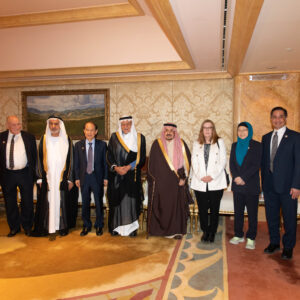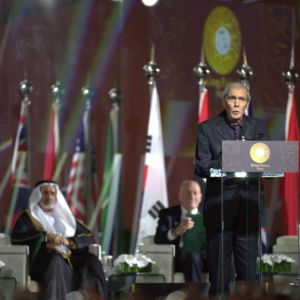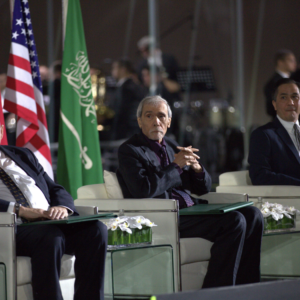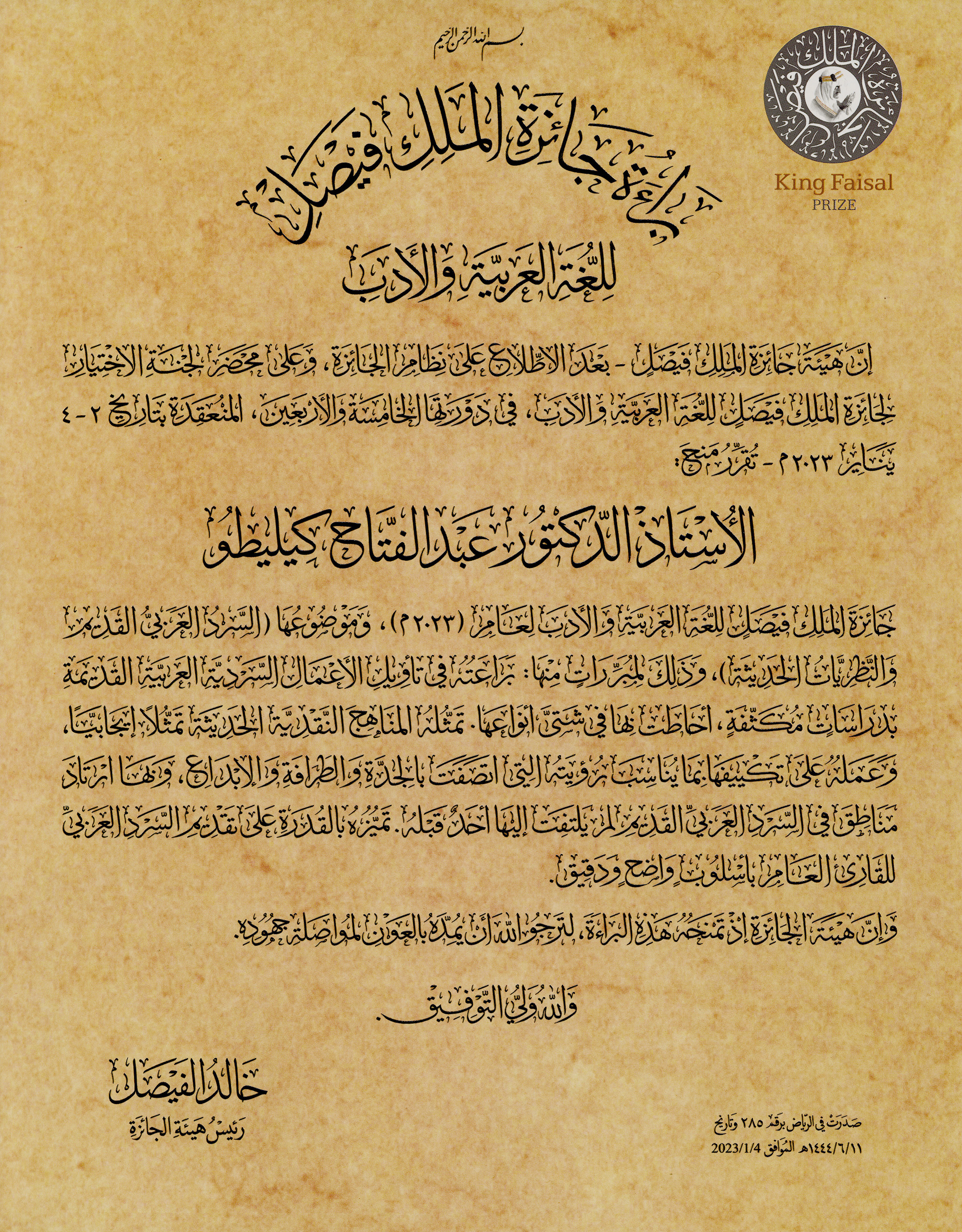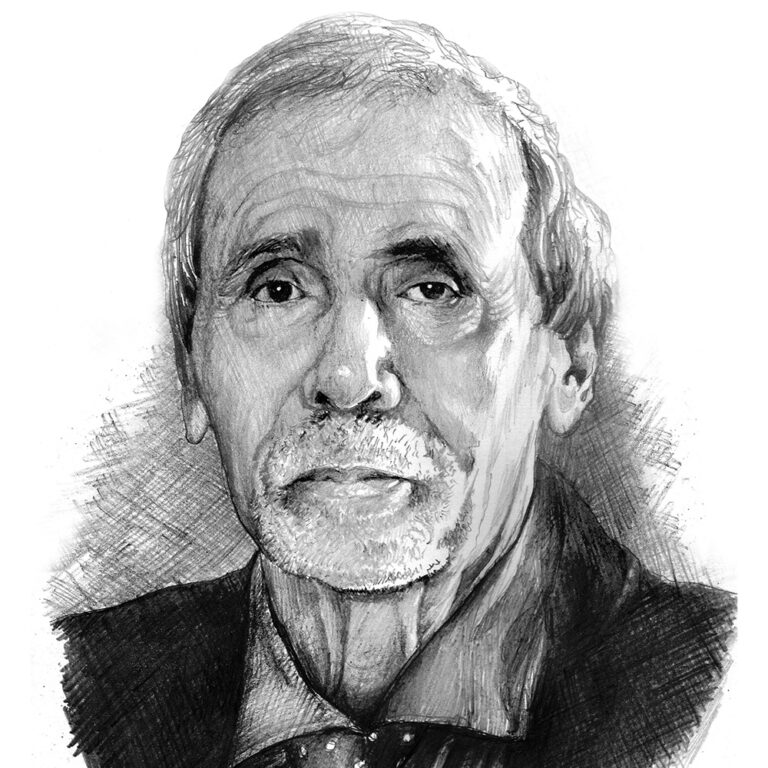

Professor Abdelfattah Kilito
King Faisal Prize in Arabic Language and Literature 2023 Laureate
Topic: "Classical Arabic Narrative and Modern Theories"
One Thousand and One Nights is the only Arabic book widely known outside the Arab world.

Professor Abdelfattah Kilito studied at Mohammed V University, Rabat, at the Faculty of Arts, specializing in French literature. He pursued his studies until he obtained a postgraduate diploma in 1971 on a theme about the novelist François Mauriac.
He started teaching at the Faculty of Literature in 1968 and continued to teach modern literary theories at the same Faculty until retirement in 2010. In addition to his interest in French literature, he never ceased to attach interest to Arabic literature. In 1967, on the occasion of preparing a certificate in comparative literature, he discovered ancient Arabic literature and closely studied the works of critics, including Ibn Qutaybah, Qudamah bin Ja’afar, Al-Amadi, Al-Qadi Al-Jurjani, and Abdul-Qaher Al-Jurjani.
At the close of the sixties, the movement of structural analysis of the narrative emerged, so Professor Kilito took an interest in it and read the writings of Roland Barthes, Gérard Genette, Tzvetan Todorov, and Algirdas Greimas. He then decided to devote his doctorate to ancient Arab narrative, so he registered at the new Sorbonne University a subject on the maqamats (Arabic prosimetric literary genre), focusing on the relationship of narrative with cultural systems. The thesis was published in 1983 and had widespread resonance among French Arabists, as some of them translated the texts he studied, including “Maqamat al-Hamdhani”, “Maqamat al-Hariri”, “The Tale of Abu al-Qasim” by al-Mutahhar al-Azdi, and “Doctors’ Call” by Ibn Batlan. In the meantime, interest in “One Thousand and One Nights” grew stronger. The book was re-translated into French and tentative analytical writings were published, especially the analysis penned by André Mikkel, Jamal Eddine Bencheikh, and Claude Bremont. In this environment, Abdel Fattah Kilito wrote “The Eye and the Needle, a Study on One Thousand and One Nights” (1992). He was also concerned with the perceptions of Arab historians and news transmitters about the original language and the first poem. He wrote “The Tongue of Adam” (1995) on this topic, in addition to other studies in ancient biographies and in the literature of virtues.
With regard to Professor Kilito’s approach to these texts, he was keen on deepening his knowledge of various modern theories, while being very cautious not to be fascinated by them. In his view, this can only be achieved through a comprehensive assimilation of ancient theories, as well as familiarity with aspects of modern world literature, in order to avoid narrow-minded specialization.
Professor Kilito has been a visiting professor and lecturer at the New Sorbonne, Harvard University, Princeton University, the University of Chicago, the University of Oxford, and the College de France. In parallel, his writings have been translated into nearly ten languages, and he won a number of awards for his literary and critical output.
This biography was written in the year the prize was awarded.


